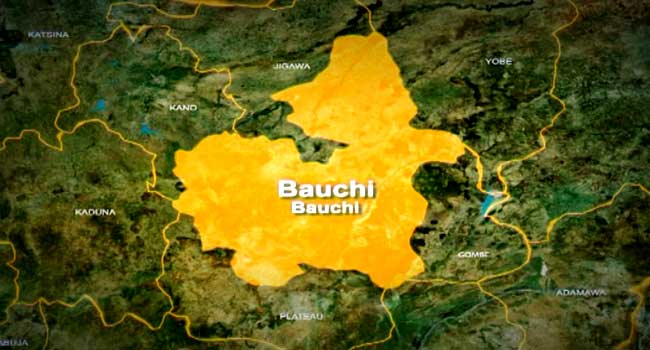Gwallameji community in Bauchi metropolis has developed a databank for residents in a renewed campaign to combat ritual killings and criminal activities in the area.
The community has set up a committee and distributed registration forms for bio data capture to old and new residents.
District Head of the community, Ahmed Sani said this while responding to a survey on ritual killings by the News Agency of Nigeria, NAN, in Bauchi.
The development came against the backdrop of the prevalence of ritual killings and human sacrifice for quick money in many parts of the country.
Many Nigerians including members of the House of Representatives had called for proactive measures to address the menace.
In 2022, the lower legislative chamber had passed a resolution urging the federal government to declare a state of emergency on the rising incidence of ritual killings in the country.
The lawmakers also ordered the then Inspector-General of Police, IGP, Usman Alkali Baba, to increase surveillance and intelligence gathering with a view to apprehend and prosecute perpetrators of the act.
They also directed the National Orientation Agency, NOA, to create awareness on the ills of ritual killings and mobilise participation in the fight against the crime.
Sani said the data bank was developed to track suspicious persons and activities, fight crimes and enhance security in the state.
He said the desperation for quick money by some youths resulted in increased crimes and ritual killings in the society.
“With the introduction of the bio-data forms, the level of criminal activities will reduce as everybody living within the community will know each other and what they do for a living.
“Surprisingly, some people have already started leaving the community as a result of the introduction of the resident bio-data,” he said.
Sani noted that although poverty has been identified as one of the causes of ritual killings, the act is being perpetrated by self seeking wealthy individuals in the society.
Also, Sulaiman Ibrahim, an elder in Wunti Dada community in Bauchi, expressed concern over the trend of ritual killings and desperation for wealth among youths.
He said lack of values, morals and drug abuse are largely responsible for the spate of ritual killings in the country.
He, therefore, urged government at all levels to provide more opportunities for young people to learn skills to enable them engage in productive activities.
Similarly, experts in the legal and security sectors have advocated proactive measures and stiffer penalties to tame the spate of ritual killings bedevilling communities in parts of Nigeria.
A retired Deputy Commissioner of Police, Mr Abu Solomon, said ritual killings is a multifaceted issue that demands thorough and coordinated response to address.
He said there is the need for collective community engagement to promote attitudinal change and support security agencies to prevent and respond to crimes.
Solomon emphasised that traditional rulers have a critical role to play in addressing the menace, adding that “regional security arrangements such as state and local security councils will help in coordinating efforts to combat ritual killings.”
A criminologist, Saminu Bello noted that ritual killing is a source of concern in view of its varied and complex root cause.
He said it is good for the society to initiate practical and multi-faceted approach that involve security agencies, regional and community leaders, to combat ritual killings.
This, he said, would bring together, security agencies, experts, religious and community leaders to share intelligence and develop strategies towards effective prevention and response to the nefarious act.
Bello identified the desire for quick wealth, poverty, unemployment and lack of education as some of the underlying factors causing ritual killings.
Meanwhile, spokesperson of the Bauchi State Police Command, CSP Ahmed Wakil, dismissed as “misleading”, reports insinuating the existence of a human body parts market linked to the rising cases of ritual killings in the state.
Wakili reaffirmed the commitment of the command to thoroughly investigate and address the reported cases of ritual killings.
Moreso, spokesman of Jigawa State Police Command, SP Lawan Shiisu, reiterated the command’s commitment to work in collaboration with relevant stakeholders to address the menace.
He noted that the state government had enacted laws to enhance prevention and prosecution of perpetrators. (NAN)





